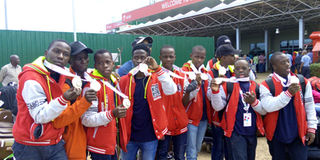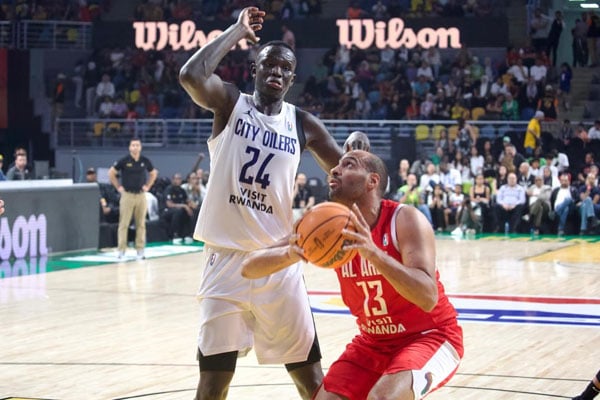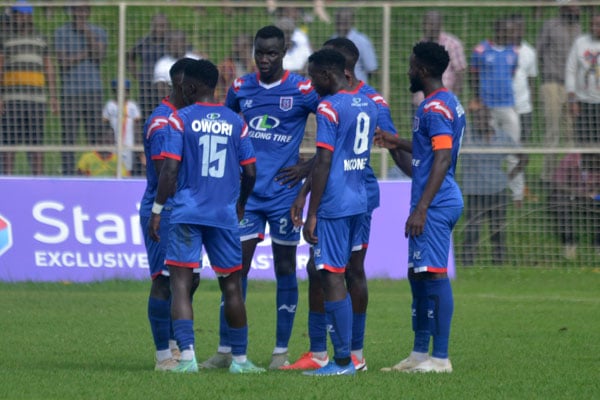Special Olympics seek more support from govt

Triumphant: Special Olympics stars showing off their medals after the team returned on Sunday. PHOTO by A. Nasser Ssemugabi
KAMPALA.
There is no better moment to seek attention than in the immediate aftermath of a huge victory. This is exactly why Ethiopian marathoner Feyisa Lilesa—while pacing to silver at the Rio 2016 Olympics—gestured in protest against ethnic persecution of his Oromo tribemates.
Now, after winning gold in the Floor Hockey tournament during the 2017 Special Olympics Winter Games in Graz, Austria, Team Uganda voiced their need for government help.
“I pray that our government recognises these boys’ achievement like they have done for athletes,” said Genevive Bamwidhukire, country director Special Olympics on arrival at Entebbe Airport Sunday afternoon. “These games are vital in the rehabilitation of these children and helping them to showcase their great abilities despite their intellectual limitations. Some came when they can’t speak but see them now, they are very lively.”
The Special Olympics entertains people with intellectual disabilities, though a team is allowed a certain number of nondisabled members. This team won the 2013 edition in Pyeongchang, Korea, but sadly, they got nothing in recognition.
Ms Bamwidhukire added: This is a great achievement considering the wanting conditions we trained in, we also travelled in ‘instalments’ but thank God the boys picked up the pieces, played as a team and won when it mattered most.
“But it’s very tasking to build a winning team under such challenges, some of these children come without playing boots and no equipment at all yet we don’t charge any fees, so we have to dig everything from our shallow pockets, we seriously need more support.”
If that much-sought support comes through, Team Uganda will approach the 2019 Summer Games in Dubai with more teams and optimism.




